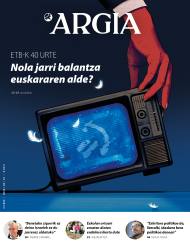Europe in decline?
The elections to renew the European Union (EU) Parliament are scheduled for next June and will last until 2029. For this legislature which is about to conclude, one of the objectives of the committee chairman, Ursula von der Leyen, was to promote green Europe, but it has been difficult for him to achieve this objective because the lobbies that have a great influence in Brussels have not made the way for him.
In fact, it has had to approve as a source of energy, among the greens, nuclear and coal energy. In this directional adaptation by Von der Leyen the French State has been very important, where nuclear power plants account for 70% of electricity production. On the contrary, the use of coal has been pressured by Germany to produce electricity, as the decrease in cheap gas coming from Russia has also meant.
On the other hand, the war in Ukraine began in the middle of this parliamentary term and the situation has worsened dramatically for the EU, being held between Russia and the USA. Germany had to lead the EU, but there are Social Democrats in power who have made themselves known as NATO supporters, and in that direction the Greens and Liberals have given themselves to taste. The Greens were pacifists in the 1980s and today in the genocide in Gaza they are aligned with Israel.
The EU’s main objective for the next legislature will be security and, on the contrary, green Europe will be avoided, even more so after turning its head on the mobilisations of industrial agriculture. In order to ensure this security, Trump wants defensive spending to reach 2% of GDP in his mandate.
The EU made misguided economic forecasts for the war in Ukraine, partly discouraged by the US, with the aim of reducing European autonomy
In the wake of the Ukrainian war, the EU made misguided economic forecasts, partly discouraged by the US, aimed at reducing the autonomy of Europeans. Because, once the war has started, Russia has been subjected to thirteen economic sanctions, and it is a paradox that the EU economy, especially Germany, has been hardest hit than Russia.
Why that paradox? First, because the direction of the oil and gas of Siberia has been towards the east, which is about to build the gas pipeline called Siberia Force 2. Therefore, the cheap and appropriate gas that could come to Germany, goes to China, while Russia gets funds to fund the war; oil goes to China and India, and in many cases is consumed in Europe.
Who also does not remember the SWIFT system for international financial payments? The Europeans believed that Russia was going to fail its economy dismissed from this system. And in addition to creating their own system, Chinese and Russian agreed to make payments of their funds and circumvent the SWIFT system. The EU now wants to use the profits of foreign Russian assets to finance the war in Ukraine and European rearmament. If this proposal were to succeed, the fundamental basis of the liberal capitalist system, sacred private property, would change radically and have immense consequences. For example, could the expropriations of the large Cuban landlords coincide with international law? Meanwhile, in Russia they have taken this information seriously and announce that they will go to international courts, starting a process that can last a long time.
Finally, the German economy has been in crisis since the year 2023, mainly due to the increase in fuel from Russia, as well as high interest rates on investment. Consequently, in 2023 GDP grew by -0.3%. From there, to address the rearmament of Germany and the EU to ensure security with Russia. We must not forget that in Germany the Nazis applied this Keynesian economic policy and ended the death of 26 million Soviets.
Bidali zure iritzi artikuluak iritzia@argia.eus helbide elektronikora
ARGIAk ez du zertan bat etorri artikuluen edukiarekin. Idatzien gehienezko luzera 4.500 karakterekoa da (espazioak barne). Idazkera aldetik gutxieneko zuzentasun bat beharrezkoa da: batetik, ARGIAk ezin du hartu zuzenketa sakona egiteko lanik; bestetik, egitekotan edukia nahi gabe aldatzeko arriskua dago. ARGIAk azaleko zuzenketak edo moldaketak egingo dizkie artikuluei, behar izanez gero.
There are those who, being a brilliant brain, with definitions of "little detail," are experts in transforming and transforming the same thing, in other words. It was yours and it has been a project in eternum that has been repeated for decades. This was one of the main reasons to... [+]
On 26 December, during an air strike, the Israeli Army killed five Palestinian journalists trying to reach the city. They killed 130 Palestinian journalists. This news has reminded me of a couple of things, the first, the persecution of true journalists in any part of the world,... [+]
In recent months I have had to work in a number of institutes and, at some point, I have had to talk to the students about the possibilities offered by the labour market. The typology of the students is varied and in the same city varies a lot from one neighborhood to another,... [+]
The girl who appears in the center of photography, which can hardly be considered historical, is writing a list of adjectives: I, you, he, we, you, they. Looking down, I couldn't see what his gaze looked like.
Insensitive to the work of the photographer, you, slowly and... [+]
When you work with older people or people with physical and neural diversity, you realize that the idea of competition in our society limits us a lot as a species. That is, our system puts you in value by doing things specifically, and what it doesn't do is incapable of the... [+]
I wanted to write for the Christmas lights and claim to become an annual tradition in this time of street lighting, a welcoming, joyful and joyful public space from the point of view of the class. But, of course, also warm public spaces where some young people can be warming up... [+]
He forgives the oak trees, oak trees, oaks, herons, strawberries, dressings, chestnuts, birch, gorostidias, chamomiles, pine trees and all the societies of the trees, but today the hayedo has a date on the occasion of the celebrations of the winter border.
It is easier for me... [+]
Euskaraldia comes back. Apparently, it will be in the spring of next year. They have already presented it and the truth is that it has surprised me; not Euskaraldia himself, but his motto: We'll do it by moving around.
The first time I have read or heard it, the title of the... [+]
When the heteropatriarchal capitalist colonial system is questioned and fought, it attacks mercilessly. Using all the tools at your disposal to strengthen, strengthen and consolidate institutional power, media, justice, language, culture, violence...
In Switzerland, where every... [+]
I do not know if you also have the same perception – I recognise this: here I have started to write in a scientific way. I am referring to the natural extension of the word laziness. I hear more and more in the corners of Hego Euskal Herria: Basque, Spanish and, of course,... [+]
Many at Christmas feel more lazy than illusion when we think about meals and family gatherings. But we anticipate that it is not food that makes us feel collectively uncomfortable, but the normativity that defines the traditional family. Moreover, we would dare to say that the... [+]
I have always found the way in Spanish to the carriages that can be found here and there: humiliating. Isn't it a pretty light, white name or doesn't it have any connotation? After all, everything that was going on there had to be humiliated. It is known that for the god of... [+]
The end of the Syrian Arab Republic has caused great surprise at the way in which it has taken place: fast and almost without resistance. However, it is not so strange when we consider that the country was destroyed, impoverished and trodden. Most Syrians have long been... [+]


















